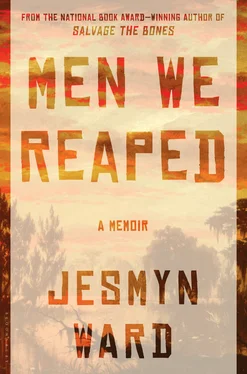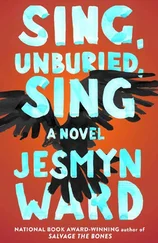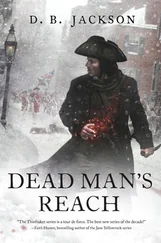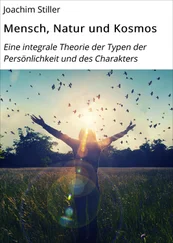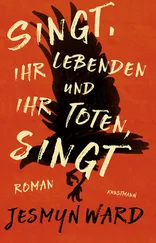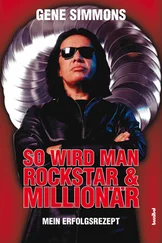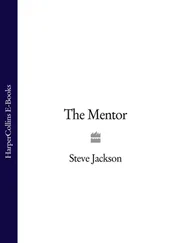“They killed my brother!” she sobbed. She’d been close to Rog.
I left my mother’s house and drove through DeLisle, deep into the country. I drove with the windows down and my lights low. On a solitary road I ran into my ex-boyfriend from high school, Brandon; we stopped our cars in the middle of the empty darkness that is endemic to rural Mississippi. I’d known Brandon since I was seven years old, and his face was as familiar as my own. I walked to his car and passed a hand over my forehead and leaned into the driver’s-side window. His own eyes were wide and black, and the woods around us burned with calling insects.
“You heard?” I said.
I hugged him. Rog was his first cousin, his younger cousin. They had the same black eyes, the same curly black hair. Brandon nodded. My face brushed against his as I pulled away. His skin was wet: the night was so hot I didn’t know if it was sweat or tears.
“You heading to Oak Park?” I asked. After days of others knocking but not walking in, Rog’s sister Rhea had found Rog. I do not like to imagine what it must have been like for her.
“Yes,” Brandon said.
I left him behind in the middle of the street. When I arrived in the Oak Park subdivision, I parked my car on a cement curb and walked over to stand on the lawn in front of Rog’s house. People stood in drifting pockets at the edge of the same street we had partied on. Charine and Tasha met me there. We faced the house. A long hearse, gray and black with silver accents, took Rog away. It had a hard time maneuvering the driveway. The street lamps buzzed. When they rolled Rog out on the stretcher and loaded him into the back, I cried, my mouth open. I hated the hearse. I wanted to set it on fire. As the driver clumsily crushed the grass and swerved out of the yard, I thought of what my ex had said to me before I drove away.
“They picking us off, one by one,” Brandon had breathed.
After the people dispersed and Rog’s immediate family locked the house and turned off all the lights, we milled in the street, waiting. We waited as if we could will the hearse back to the house, will Rog to rise out of the back, alive. Will him to joke, to smile. I drove home across the black, inky bayou by myself. I thought about Josh. I thought about C. J., about Demond, about Ronald. I rode with the windows open and thought about Rog.
I thought about what Tasha and Brandon had said, and I wondered who they were. Rog had died by his own hand, by his own heart; were they us? Or was there a larger story that I was missing as all these deaths accumulated, as those I loved died? Were they even human? My headlights lit a slim sliver in the darkness, and suddenly they seemed as immense as the darkness, as deep, as pressing. I turned off my music and rode home without the narrative of song, with only the bugs’ shrill cry and hot wind whipping past my window. I tried to hear the narrative in that, to figure out who the they that wrote our story might be.
After Rog’s funeral, I tapped Rhea’s shoulder. I opened my arms, hugged her. Her big, expressive eyes were bloodshot and wandering. I wondered what I would have wanted someone, anyone, to say to me when my brother died, anything beyond Are you all right? and Are you okay? I knew the answers to those questions. I whispered into her ear: “He will always be your brother, and you will always be his sister.”
What I meant to say was this: You will always love him. He will always love you. Even though he is not here, he was here, and no one can change that. No one can take that away from you. If energy is neither created nor destroyed, and if your brother was here with his, his humor, his kindness, his hopes, doesn’t this mean that what he was still exists somewhere, even if it’s not here? Doesn’t it? Because in order to get out of bed this morning, this is what I had to believe about my brother, Rhea . But I didn’t know how to say that.
After every funeral in the hood, including Rog’s, there is a gathering or a repast. Older women brought large pans containing casseroles and meat to Mrs. P.’s house. We all found our way there, and we parked in front of her house, some of us in neighboring yards, our cars half on the grass, half on the asphalt, this time in the middle of the day. We ate with plates balanced on our laps, one foot in our cars, the other out. We smoothed our shirts down, white T-shirts with pictures of Rog framed in blue. In Rog’s picture, he has deep dimples and an even, blinding smile. We breathed heavily.
The memorial shirt is most common at funerals for young people. I do not know if it is common in Black neighborhoods in the North or East or West, but in the South, it has become as traditional as the repast. Rog’s shirt was made by his cousins: they gathered the pictures for the shirt, designed it, and then offered one to anyone who could afford the $20 it cost to make it. In this way, the young memorialize the young. On his memorial T-shirt, Rog has a charming grin, looks as if he is on the verge of saying, Hey, how you doing, what we getting into tonight? Around Rog’s larger picture, there are pictures of the other dead young men: Ronald, C. J., Demond, Joshua, and two others who had died years before and whom I was not so close to, one in a car wreck and the other by suicide. They are all smiling in what look like school photos or family reunion shots. My brother looks like a young thug in his picture, like he could run with the best of the phantom menace in New Orleans. He holds my father’s SK gun and postures for the camera, a bandana over the bottom half of his face, his hair cut close to his head. He must have been sixteen then. I had never seen this picture of Joshua before, and seeing him there with all the other dead young men made me cry while I ate. I chewed my funeral food on a hot Mississippi summer day and looked at my brother’s eyes, large and brown and wide, in a picture that revealed nothing of what he was, and represented everything that he wasn’t.
Yagga yo and what you mean? it said on the back of Rog’s memorial shirt. This was something he said often, I was told, but his cousins did not tell me its meaning. OPT, the shirt also read. Rog’s picture was an insult to the living man, too blurry, too static for the smiling, open-armed twenty-three-year-old he’d been. Written on the front of the shirt and finished on the back was the declaration: THE SAME THING THAT MAKE YOU LAUGH MAKE YOU CRY. This was too pat, I thought as I wiped my tears. In that moment, I could not remember ever laughing, could not recall what it felt like to open my mouth and scream my loud, embarrassing laugh with Rog. I looked at my family and friends, all of us crying and looking away from each other, and I could not recall having the ability to laugh at all. Only this loss, this pain. I could not understand why there was always this.
I was born early at six months, on April Fools’ Day, 1977. My mother was eighteen, my father twenty. They were living with my father’s mother in Oakland, in his childhood room awash with the detritus of his teen years: Bruce Lee posters, nunchaku hung on nails, my father’s illustrations. My mother cannot remember the conversation that signaled my impending arrival, but I imagine my mother waking and telling my father, “I need to go to the hospital,” and my father laughing, thinking it a good April Fools’ joke. And then my mother would have curled over in pain on the bed. “I’m serious.” The look on her face: his doe catching a glancing blow from a car fender.
When I was born, I weighed two pounds and four ounces, and the doctors told my parents I would die. My skin was red, paper thin, and wrinkly, my eyes large and alien. My father took a picture of me, of my entire body, cupped in the palm of his hand. Because I weighed so little, I developed blood tumors, which swelled up and out: they were bulbous, swollen maroon, an abundance of blood barely contained by thin skin. Two burst and leaked. When I was around four years old, they would shrink completely flat and leave mottled scars where they’d sprouted and grown: on my stomach, my wrist, the back of my thigh. I had a growth in my abdomen, so the doctors sliced me open millimeters below my belly button for exploratory surgery before sewing me closed. The incision must have been done across the whole length of my small belly, and I imagine myself open like a frog on the operating table. Over the years, the scar would stretch, dimple, and pull where the stitches had been sewn. When the doctors realized I would survive, they told my parents I would have severe developmental problems. They were surprised that my lungs worked well, that I fought to breathe. She has a strong heart , they said. In another picture, the skin under my eyes wells in red bags, and my mother holds a breathing tube to my face. I look weary. I lived, silent and tenacious, in my incubator, my body riddled with multiple tubes. During the two months I lived at the hospital, my red color leached away. I slowly gained weight on my stomach, my gamy legs, my outstretched arms. My eyes shrank into my head. The medical staff discharged me, yellow, bald, fat, and scarred, on May 26, 1977: my mother’s nineteenth birthday.
Читать дальше
